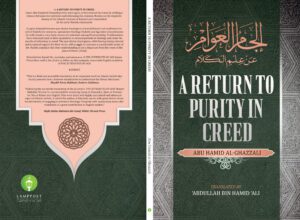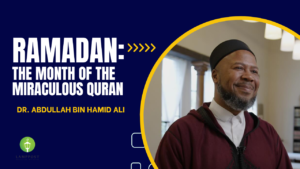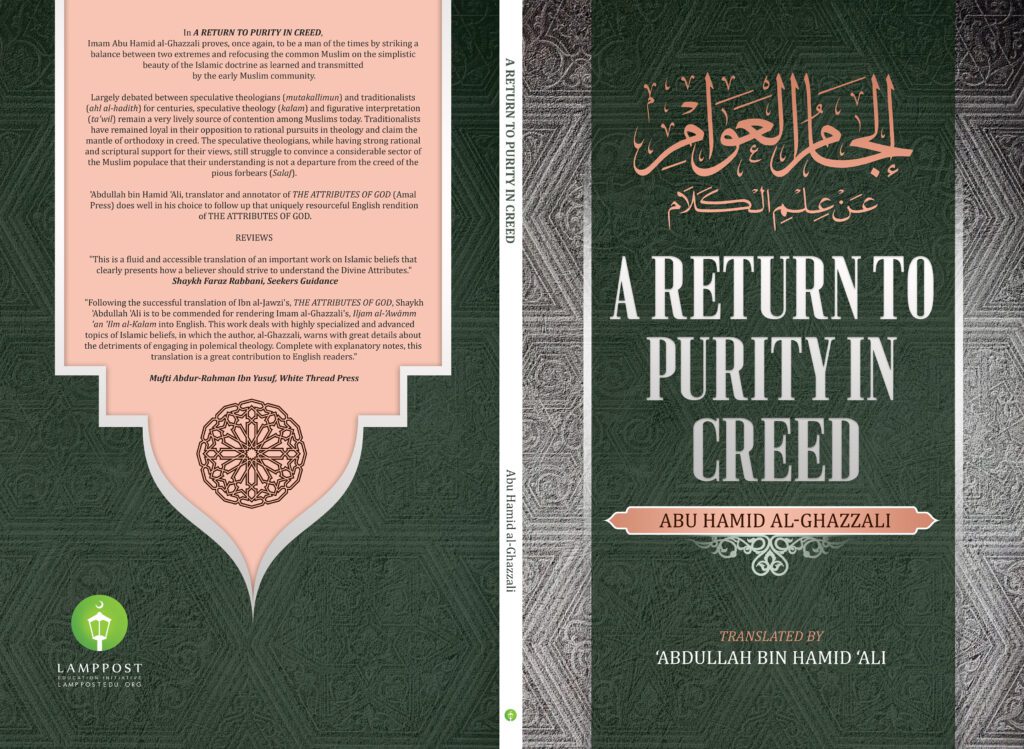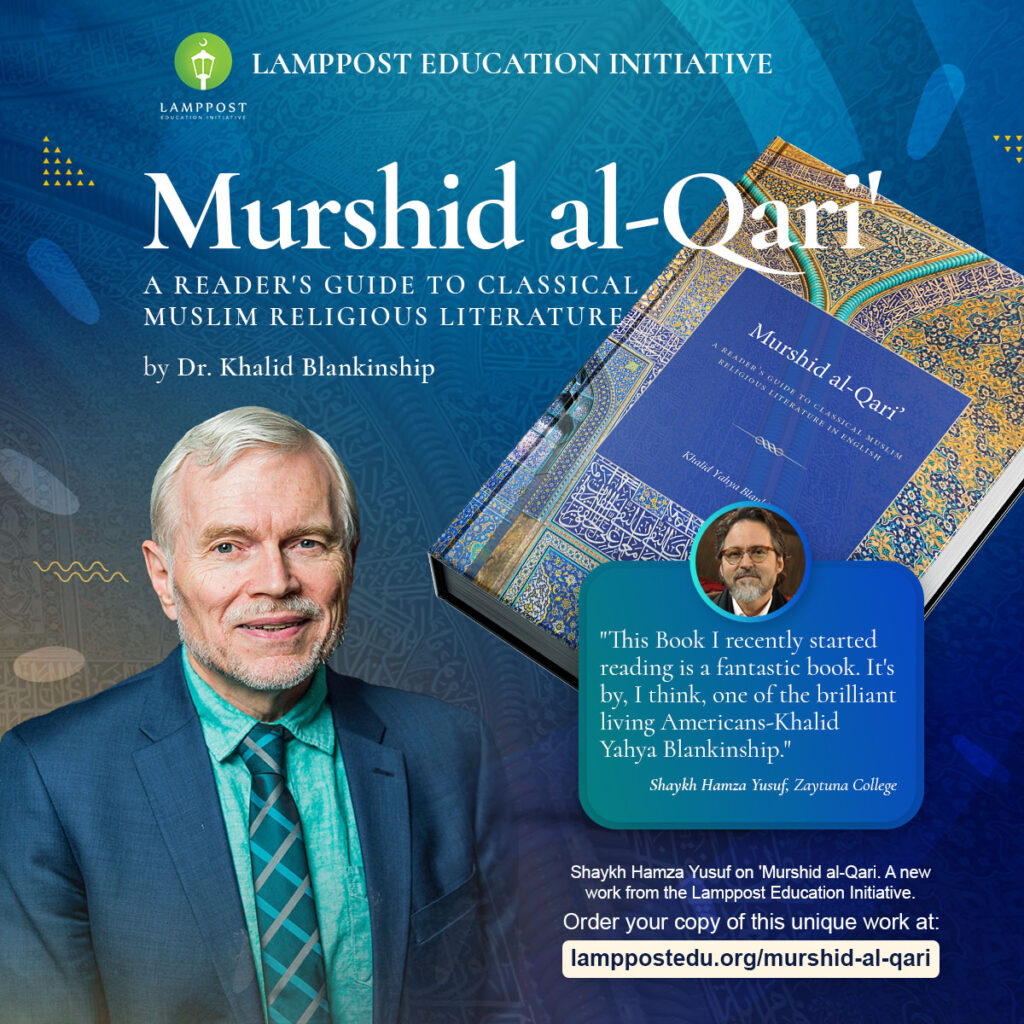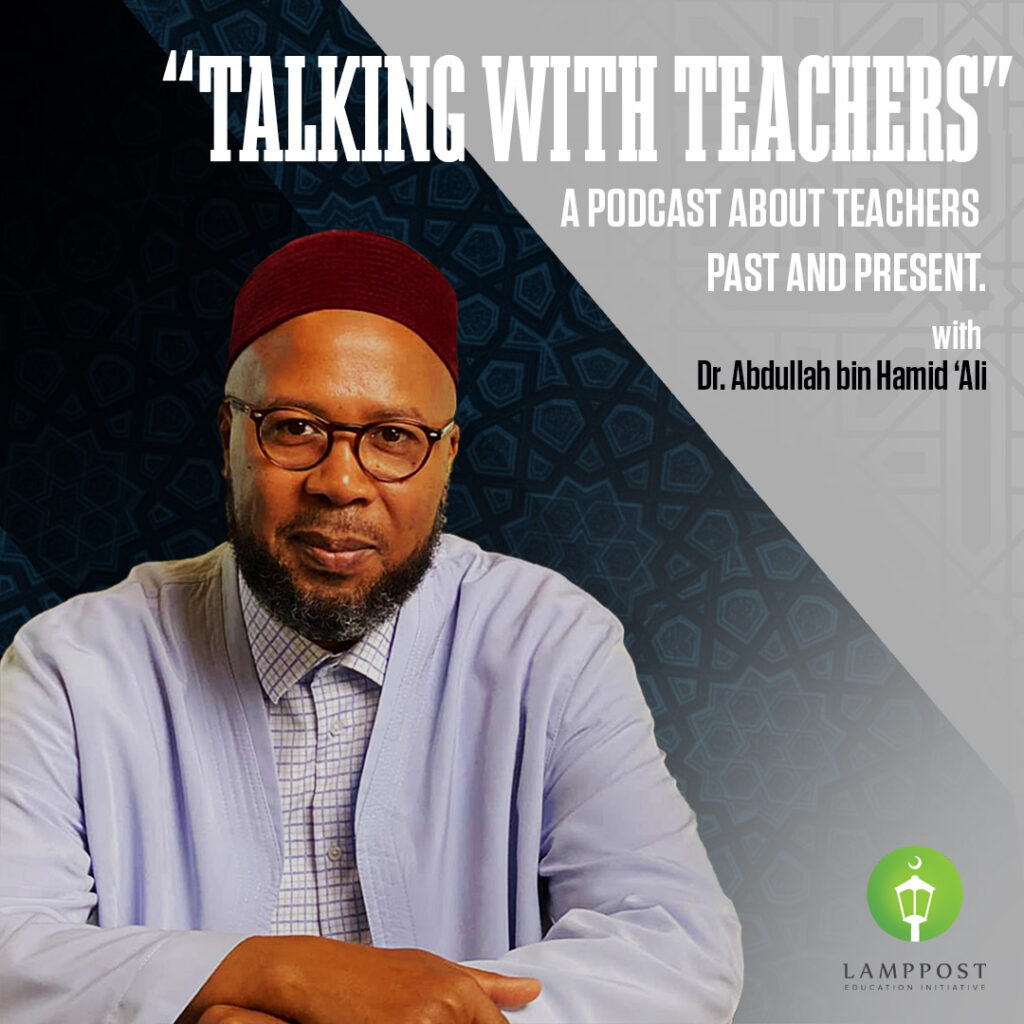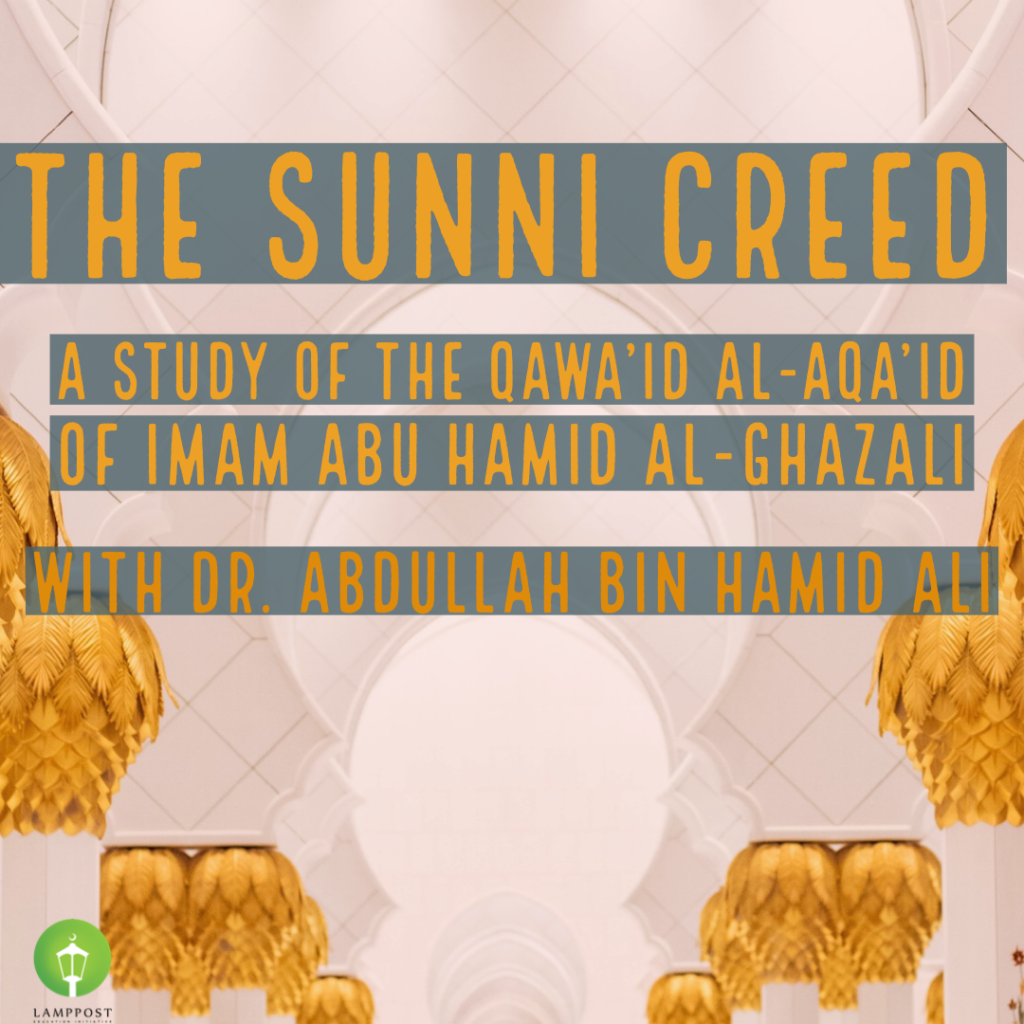Shaykh Hamza Yusuf
Hamza Yusuf is the current president of Zaytuna College, located in Berkeley, California. He is an advisor to Stanford
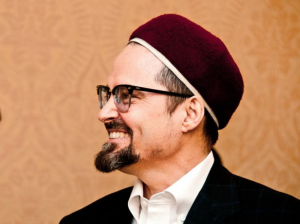
University’s Program in Islamic Studies and the Center for Islamic Studies at Berkeley’s Graduate Theological Union. He also serves as vice-president for the Global Center for Guidance and Renewal, which was founded and is currently presided over by Shaykh Abdallah bin Bayyah, one of the top jurists and masters of Islamic sciences in the world. For almost a decade, Hamza Yusuf was consecutively ranked as “The Western word’s most influential Islamic scholar” by The 500 Most Influential Muslims, edited by John Esposito and Ibrahim Kalin, (2009).
Yusuf is one of the leading proponents of classical learning in Islam. He has promoted Islamic sciences and classical teaching methodologies throughout the world.
Hisham Mahmoud
He holds a Ph.D. in Cultural and Historical Studies in Religion (2016) and an M.A. in Ethics and Social Theory 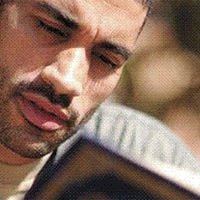 (2012) from the Graduate Theological Union. He obtained his B.A. (ijaza ‘ulya) in Islamic Law (Shariah) from the prestigious Al-Qarawiyin University of Fes, Morocco in 2001. He served as full time Islamic chaplain at the State Correctional Institute of Chester, PA from 2002-2007, and is the founding director of the Lamppost Education Initiative. He currently serves as a assistant professor of Islamic law and Prophetic Tradition at Zaytuna College in Berkeley, California His research interests include the interconnection between law and identity formation, comparative Islamic law, and Islam’s role in the modern world.
(2012) from the Graduate Theological Union. He obtained his B.A. (ijaza ‘ulya) in Islamic Law (Shariah) from the prestigious Al-Qarawiyin University of Fes, Morocco in 2001. He served as full time Islamic chaplain at the State Correctional Institute of Chester, PA from 2002-2007, and is the founding director of the Lamppost Education Initiative. He currently serves as a assistant professor of Islamic law and Prophetic Tradition at Zaytuna College in Berkeley, California His research interests include the interconnection between law and identity formation, comparative Islamic law, and Islam’s role in the modern world.
Ustadha Ieasha Prime
Ieasha Prime is a traditional Islamically trained educator, activist, and public speaker. She studied Arabic and Quran at the Fajr Institute followed by general 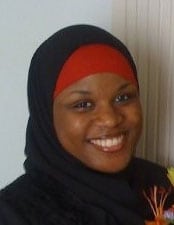 Islamic studies in Cairo, Egypt. After two years in Egypt, she moved to Hadramaut, Yemen and enrolled in Dar al Zahra, an Islamic University for Women. There she studied Aqeedah, Quran, Hadith, Arabic, Jurisprudence (Fiqh), Islamic law, Purification of the Heart and other religious related learning. Her lineage of scholarship from whom she received direct education can be traced directly back to the Prophet Muhammad (Salla Allahu alaihi wa Salaam) from the Husseini lineage. Under the tutelage of her professors, she has established several circles of knowledge and continues to teach and lecture across the United States and abroad. She now serves as the Executive Direction of Barakah. Inc
Islamic studies in Cairo, Egypt. After two years in Egypt, she moved to Hadramaut, Yemen and enrolled in Dar al Zahra, an Islamic University for Women. There she studied Aqeedah, Quran, Hadith, Arabic, Jurisprudence (Fiqh), Islamic law, Purification of the Heart and other religious related learning. Her lineage of scholarship from whom she received direct education can be traced directly back to the Prophet Muhammad (Salla Allahu alaihi wa Salaam) from the Husseini lineage. Under the tutelage of her professors, she has established several circles of knowledge and continues to teach and lecture across the United States and abroad. She now serves as the Executive Direction of Barakah. Inc
Ismail Royer
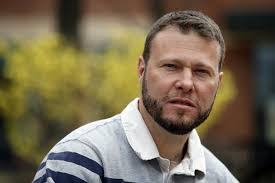
Ismail Royer is Research and Program associate at the Religious Freedom Institute (RFI), a non-profit organization based in Washington, DC. He converted to Islam in 1992 and studied political science at American University. He has studied religious sciences with scholars such as Dr. Jaafar Sheikh Idris and Sheikh Muhammad Nur Abdullah,as well as with a student of Sheikh Abdul Qadr al-Arnaout.
From 1993 to 2003, Royer worked in several non-profit Islamic organizations.
In June 2003, Royer was indicted on terrorism-related offenses for assisting the Pakistan-based Lashkar-e-Taiba (LET) and ultimately pleaded guilty to weapons charges related to the violation of United States neutrality laws. Since his release from prison in December 2016, he has worked with nonprofits to promote peace between faiths and undermine religious extremism. His writing has appeared in publications such as the Washington Post, Journal of Religion and Society, Public Discourse, Detroit Free Press, Al Jumuah, and Muslim Matters.
Dr. Jamillah Karim
Jamillah Karim is an award-winning author, speaker, and blogger. She specializes in race, gender, and Islam in America. She is a former associate professor in the Department of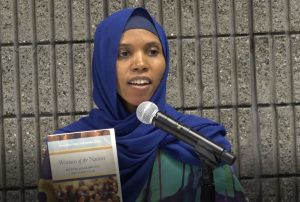 Religious Studies at Spelman College. She holds a BSE in electrical engineering and a PhD in Islamic Studies from Duke University.
Religious Studies at Spelman College. She holds a BSE in electrical engineering and a PhD in Islamic Studies from Duke University.
Dr. Jonathan Brown
Jonathan Brown is the Alwaleed bin Talal Chair of Islamic Civilization in the School of Foreign Service at Georgetown University. He received his BA in History from Georgetown University in 2000 and his doctorate in Near Eastern Languages and Civilizations from the University of Chicago 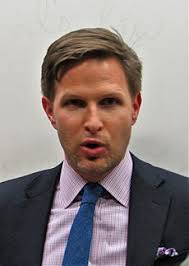 in 2006. Dr. Brown has studied and conducted research in countries such as Egypt, Syria, Turkey, Morocco, Saudi Arabia, Yemen, South Africa, India, Indonesia and Iran. His book publications include The Canonization of al-Bukhari and Muslim: The Formation and Function of the Sunni Hadith Canon (Brill, 2007); Hadith: Muhammad’s Legacy in the Medieval and Modern World (Oneworld, 2009; expanded edition 2017); Muhammad: A Very Short Introduction (Oxford University Press, 2011), which was selected for the National Endowment for the Humanities’ Bridging Cultures Muslim Journeys Bookshelf; Misquoting Muhammad: The Challenges and Choices of Interpreting the Prophet’s Legacy (Oneworld, 2014), which was named one of the top books on religion in 2014 by the Independent; and Slavery and Islam (Oneworld, 2019). He has published articles in the fields of Hadith, Islamic law, Salafism, Sufism, Arabic lexical theory and Pre-Islamic poetry and is the editor in chief of the Oxford Encyclopedia of Islam and Law. Dr. Brown’s current research interests include Islamic legal reform and a translation of Sahih al-Bukhari. He is also the Director of Research at the Yaqeen Institute.
in 2006. Dr. Brown has studied and conducted research in countries such as Egypt, Syria, Turkey, Morocco, Saudi Arabia, Yemen, South Africa, India, Indonesia and Iran. His book publications include The Canonization of al-Bukhari and Muslim: The Formation and Function of the Sunni Hadith Canon (Brill, 2007); Hadith: Muhammad’s Legacy in the Medieval and Modern World (Oneworld, 2009; expanded edition 2017); Muhammad: A Very Short Introduction (Oxford University Press, 2011), which was selected for the National Endowment for the Humanities’ Bridging Cultures Muslim Journeys Bookshelf; Misquoting Muhammad: The Challenges and Choices of Interpreting the Prophet’s Legacy (Oneworld, 2014), which was named one of the top books on religion in 2014 by the Independent; and Slavery and Islam (Oneworld, 2019). He has published articles in the fields of Hadith, Islamic law, Salafism, Sufism, Arabic lexical theory and Pre-Islamic poetry and is the editor in chief of the Oxford Encyclopedia of Islam and Law. Dr. Brown’s current research interests include Islamic legal reform and a translation of Sahih al-Bukhari. He is also the Director of Research at the Yaqeen Institute.
Dr. Khalid Yahya Blankinship
Born in Seattle, WA, Khalid Yahya Blankinship obtained his BA in History in 1973 from the University of Washington, an MA in Teaching English as a Foreign Language in 1975 from the American University in Cairo, and an MA in Islamic History in 1983 from Cairo University. His Ph.D. in History is from the University of Washington in 1988.
After traveling extensively in Europe and the Middle East, Blankinship long resided in Egypt and in Saudi Arabia at Makkah, becoming fluent in both classical and colloquial Arabic. He taught English for several years at 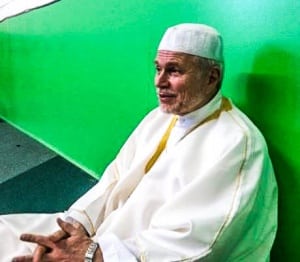 the American University in Cairo, and then History at the University of Washington. In 1990, Blankinship moved to Philadelphia, where he was appointed in the Department of Religion at Temple University. Promoted to the rank of Associate Professor in 1996, he has served as Chair of the Department of Religion 1998-2002, Departmental Graduate Director 2003-2013, and Chair again from 2013. He is active in lecturing and research on religion in general and Islam in particular.
the American University in Cairo, and then History at the University of Washington. In 1990, Blankinship moved to Philadelphia, where he was appointed in the Department of Religion at Temple University. Promoted to the rank of Associate Professor in 1996, he has served as Chair of the Department of Religion 1998-2002, Departmental Graduate Director 2003-2013, and Chair again from 2013. He is active in lecturing and research on religion in general and Islam in particular.
In addition to courses on Islam, he regularly teaches Religion in the World as well as Religion and Science. He has regularly presented papers at the annual meetings of the American Academy of Religion (AAR) and the American Oriental Society (AOS), and has also participated in meetings of the Middle East Studies Association (MESA). He has delivered lectures in many places, including Morocco, Saudi Arabia, Jordan, Egypt, India, and Malaysia. Also, Blankinship studied with a number of Muslim religious scholars, especially Shaykh Ismâ‘îl Sâdiq al-‘Adawî (1934-1998), the Imâm of Masjid al-Azhar in Cairo, and he has made the acquaintance of many well-known scholars of the Muslim world. He has posted a number of his responses to questions on Muslim law (on-line). He participated in the series of religious lectures in the Arabic language called al-Durûs al-Hasaniyyah (Hasanian Lectures) presented before the king in Morocco during Ramadân 1989-2000.Dr. Khalid Blankinship is a regular contributor to the Lamppost Education Initiative. We are pleased to announce that we are publishing a book for English speaking Muslims by Dr.Blankinship, entitled ‘Murshid Al-Qari’-A Reader’s Guide to Classical Muslim Religious Literature in English.’ This work will be available in 2020
See a listing of Dr. Khalid Blankinship’s work HERE
Dr. Khalil Abdur-Rashid
Khalil Abdur-Rashid was born in Atlanta, Georgia. He completed his bachelor degree in Social Work and worked for the state of Georgia as a social worker for several years. 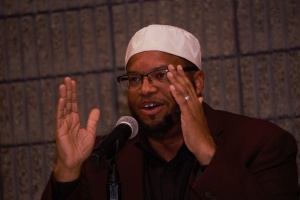 He pursued Islamic studies academically and traditionally which led him overseas to study for numerous years. He pursued a Master’s Degree in Istanbul, Turkey in Islamic Law at Marmara University.
He pursued Islamic studies academically and traditionally which led him overseas to study for numerous years. He pursued a Master’s Degree in Istanbul, Turkey in Islamic Law at Marmara University.
He also completed advanced Islamic seminary training and received his full doctoral license (Ijaaza) in Islamic Sciences. Khalil holds a Master of Arts in Middle East Studies as well as a Master of Philosophy in Islamic Law both from Columbia University in New York City. He recently received his Ph.D in Liberal Studies at Harvard University, specializing in the structure and representation of American Muslim identity.
He has taught numerous courses on Islam and Islamic law at NYU and Columbia University and taught Arabic language at Georgia State University.
He was the first paid Muslim Chaplain for Columbia University and Barnard College in New York City and served as an advisor to the NYPD Police Commissioner. He also served as Imam for several years in New York City and has lectured at Harvard, Princeton, and NYU. He served for several years as Scholar-in-Residence at the Islamic Association of Collin County. He has also served as an adjunct professor of Islamic Studies in the Graduate of Liberal Studies Program at SMU. He currently works as an Islamic chaplain at Harvard University
Shaykh Muhammad Mendes
Muhammad Adeyinka (pronounced: ah-deh-yin-ka) Mendes was born in the United States and raised in both the US and in Nigeria. At the age of 17, he embraced Islam 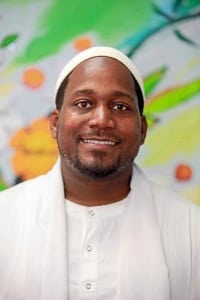 after a life changing journey to Palestine. While at Morehouse College and later at the Ohio State University, he pursued a BA in Arabic and began studying the classical sciences of Islam with scholars from various countries around the United States, among them were Shaykh Hamza Yusuf Hanson, Shaykh Muhammad Shareef, Dr. Antar ibn Standford Smith, Shaykh Nuh Keller, Ustath Ahmad Abdur-Rahman, Ustath Hamidou Taal, and Ustath Amr Khalifa.
after a life changing journey to Palestine. While at Morehouse College and later at the Ohio State University, he pursued a BA in Arabic and began studying the classical sciences of Islam with scholars from various countries around the United States, among them were Shaykh Hamza Yusuf Hanson, Shaykh Muhammad Shareef, Dr. Antar ibn Standford Smith, Shaykh Nuh Keller, Ustath Ahmad Abdur-Rahman, Ustath Hamidou Taal, and Ustath Amr Khalifa.
Upon graduation, he traveled to the Middle East and West Africa to sit at the feet of a number of notable scholars who further acquainted him with the major Islamic sciences of Qur’anic Recitation, Prophetic Narrations, Classical Arabic, Theology, Jurisprudence, and Purification of the Soul. Among the scholars he was blessed to learn from were Shaykh Fareed Azuz (Algeria), Shaykh Mustafa Turkmani (Syria), Shaykh Abdul-Halim al-Jaza’iri (Algeria), Shaykh Murabit al-Hajj (Mauritania), and Shaykh Ibrahim Makana (Nigeria). He also studied at Ma’had Abi Nour in Damascus, Syria, and has received licenses to teach (ijazat) from Shaykhs Uthman al-Imam an-Naijayri (Nigeria), Ibrahim Makana (Nigeria), Muhammad al-Ya’qoubi (Syria), Muhammad an-Ninowy (Syria), and Khalil Abdur-Rashid (USA).
Shaykh Muhammad An-Ninowy
Shaykh Dr. Muhammad bin Yahya Al-Husayni An-Ninowy was born and raised in Syria. He began his study under his father, Sayyed Yahya (Rahimahu Allah), and many of the senior scholars of Aleppo at the time, memorizing the Glorious Qur’an 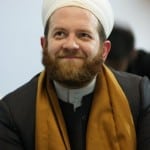 and acquiring knowledge in many of the Islamic disciplines, such as Tawheed, Hanafi/Shafi’i Fiqh, Usool, and Ihsaan
and acquiring knowledge in many of the Islamic disciplines, such as Tawheed, Hanafi/Shafi’i Fiqh, Usool, and Ihsaan
Besides graduating from the Faculty of Usul-ud-Din at Al- Azhar University, Shaykh Dr. Muhammad delved further into the fields of Hadeeth and Ihsaan under the tutelage of many of the foremost scholars worldwide, who resided in Syria, Hijaz, Morocco, Egypt, and others.
Shaykh Ninowy has established a global network of Madina Institutes which all strive to carry the same message. Shaykh Muhammad focuses on reviving the call to Deen with a Back to Basics approach i.e. the Qur’an and Authentic Sunnah, in addition to teaching tolerance, peace and compassion. Shaykh Muhammad is the senior-in-residence scholar at Madina Masjid and institute in Atlanta, Georgia since 2000. He has authored many books in the science of Tawheed, Hadith, and Usul, some of which are being translated into English and published, such as: The concept of Bid’a and its application, Nisf-Sha’ban virtues in the authentic Sunnah, Hadithi commentary on the Shamaa’el of Imam Tirmidhi, Explanation of the Nukhba Text in Hadith sciences, Explanation of the Al Fiyyah in Hadith terminology, Hadithi commentary on Imam Nasa’iy’s Khasaa’es, Expressing Delight for the birth of the Light, and more
Shaykh Muhammad is the founding director of “Planet Mercy” and Madina Institute & Seminary in the UK, South Africa, and Canada, and the USA. Shaykh Muhammad also holds a Bachelor’s Degree in Mircobiology from the University of Illinois and a Doctor of Medicine degree. Some of Shaykh Muhammad’s lectures can be viewed on: www.madinainstitute.org. Twitter: www.twitter.com/shaykhninowy and on www.facebook.com/alninowy
Shaykh Muhammad Mendes
Muhammad Adeyinka (pronounced: ah-deh-yin-ka) Mendes was born in the United States and raised in both the US and in Nigeria. At the age of 17, he embraced Islam  after a life changing journey to Palestine. While at Morehouse College and later at the Ohio State University, he pursued a BA in Arabic and began studying the classical sciences of Islam with scholars from various countries around the United States, among them were Shaykh Hamza Yusuf Hanson, Shaykh Muhammad Shareef, Dr. Antar ibn Standford Smith, Shaykh Nuh Keller, Ustath Ahmad Abdur-Rahman, Ustath Hamidou Taal, and Ustath Amr Khalifa.
after a life changing journey to Palestine. While at Morehouse College and later at the Ohio State University, he pursued a BA in Arabic and began studying the classical sciences of Islam with scholars from various countries around the United States, among them were Shaykh Hamza Yusuf Hanson, Shaykh Muhammad Shareef, Dr. Antar ibn Standford Smith, Shaykh Nuh Keller, Ustath Ahmad Abdur-Rahman, Ustath Hamidou Taal, and Ustath Amr Khalifa.
Upon graduation, he traveled to the Middle East and West Africa to sit at the feet of a number of notable scholars who further acquainted him with the major Islamic sciences of Qur’anic Recitation, Prophetic Narrations, Classical Arabic, Theology, Jurisprudence, and Purification of the Soul. Among the scholars he was blessed to learn from were Shaykh Fareed Azuz (Algeria), Shaykh Mustafa Turkmani (Syria), Shaykh Abdul-Halim al-Jaza’iri (Algeria), Shaykh Murabit al-Hajj (Mauritania), and Shaykh Ibrahim Makana (Nigeria). He also studied at Ma’had Abi Nour in Damascus, Syria, and has received licenses to teach (ijazat) from Shaykhs Uthman al-Imam an-Naijayri (Nigeria), Ibrahim Makana (Nigeria), Muhammad al-Ya’qoubi (Syria), Muhammad an-Ninowy (Syria), and Khalil Abdur-Rashid (USA).
Dr. Abdullah bin Hamid Ali
He holds a Ph.D. in Cultural and Historical Studies in Religion (2016) and an M.A. in Ethics and Social Theory (2012) from the Graduate Theological Union. He obtained his B.A. (ijaza ‘ulya) in Islamic Law  (Shariah) from the prestigious Al-Qarawiyin University of Fes, Morocco in 2001. He served as full time Islamic chaplain at the State Correctional Institute of Chester, PA from 2002-2007, and is the founding director of the Lamppost Education Initiative. He currently serves as an Associate Professor of Islamic law and Prophetic Tradition at Zaytuna College in Berkeley, California. His research interests include the interconnection between law and identity formation, comparative Islamic law, and Islam’s role in the modern world.
(Shariah) from the prestigious Al-Qarawiyin University of Fes, Morocco in 2001. He served as full time Islamic chaplain at the State Correctional Institute of Chester, PA from 2002-2007, and is the founding director of the Lamppost Education Initiative. He currently serves as an Associate Professor of Islamic law and Prophetic Tradition at Zaytuna College in Berkeley, California. His research interests include the interconnection between law and identity formation, comparative Islamic law, and Islam’s role in the modern world.
Click HERE to see more articles, videos, and more from Dr. Abdullah Ali
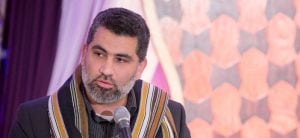
Dr. Ali Ataie
Dr. Ali Ataie is undoubtedly one of the foremost leading scholars in comparative religions today.
He is currently a teacher and researcher of the Islamic Sciences and specializes in theology and biblical interpretation. Additionally he is also the President and Founder of Muslim Interfaith Council and has been heavily involved in interfaith activities for the past 15 years. He earned his undergraduate degree in Accounting from Cal Poly State University in 2000, during which time he served as the President of the Muslim Students’ Association . He has been both a guest lecturer and guest instructor at several colleges and universities such as Cal Poly State , UC Davis , UC Berkeley, and Cal State East Bay . He studied various Islamic sciences under local Bay Area scholars and has dialogued and debated with several Christian scholars on a variety of topics ranging from the historicity of the resurrection of Christ (upon whom be peace) and the Prophet hood of Muhammad (upon whom be peace and blessings).
He is a graduate of the Badr Arabic Language Institute in Hadramawt, Yemen and studied at the prestigious Dar al-Mustafa under some of the most eminent scholars in the world. He holds a Masters’ Degree in Biblical Studies from the Graduate Theological Union in Berkeley, (the first Muslim seminarian in the 143 year history of the school to do so), and he has a PhD in Islamic Biblical Hermeneutics.
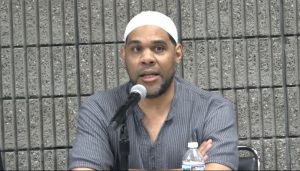
Imam Dawud Walid
Imam Dawud Walid is currently the Executive Director of the Michigan chapter of the Council on American-Islamic Relations (CAIR-MI), a chapter of America’s largest advocacy and civil liberties organization for Muslims. He frequently delivers khutbahs at Islamic centers across America and is a political blogger for the Detroit News. Imam Walid has spoken at some thirty institutions of higher learning about Islam and interfaith dialogue including DePaul University, Harvard University and the University of the Virgin Islands. He has also presented on prominent panel discussions with international leaders and academics including the 2008 and 2011 Congressional Black Caucus (CBC) Conventions and the 2009 and 2010 Malian Peace & Tolerance Conferences held in Bamako, Mali, which were attended by religious scholars from twelve different countries.
Imam Walid has been a regular contributor to the Muslim Observer newspaper and Illume Magazine and has also been interviewed, quoted, and published in numerous media outlets throughout the globe including Al-Jazeera, BBC, CNN, FOX, NBC World News, National Public Radio, the New York Times, USA Today and the Wall Street Journal. Imam Walid served as assistant Imam of Masjid Wali Muhammad in Detroit from 2001 until September 2011 while also serving as interim resident Imam of the Bosnian Islamic Center in Hamtramck during the summer of 2007. Imam Dawud Walid is currently a member of the Board of Directors for the Lamppost Education Initiative
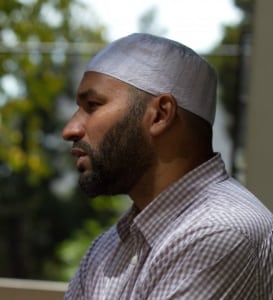
Imam Dawood Yasin
Imam Dawood Yasin serves on the Board of Directors for the Lamppost Education Initiative. He spent five years in Damascus studying Arabic, Islam, and spirituality. Upon completion of his studies, he relocated to New Haven CT where he served as Imam of Masjid Al-Islam. While in New Haven he also worked as a teaching assistant and engaged in research at Yale University. Dawood also served as Director of Outreach at the Zayed Center for Islamic Culture in the United Arab Emirates, engaging in public speaking within U.A.E. and abroad, emphasizing ethics and tolerance between Muslim and non-Muslim communities. Dawood spent five summers teaching Arabic language at the Zaytuna Summer Arabic Intensive. Dawood has worked with colleagues to establish “Learning Outside of the Classroom” program at Zaytuna College, which includes service learning trips and a revival of traditional athletics found in swimming, archery and horseback riding. Education: Abu Nour Institute (Islamic Studies), Damascus, Syria 1997-2002, University of Massachusetts at Boston, B.A. Community Studies (2009), Dartmouth College, Masters of Arts in Liberal Studies, Globalization Studies (2017)
Imam Fode Drame
Imam Fode Drame was born in the Senegambia region of West Africa. He descends from the clan of Jakhanke whose unique expression of Islam dates back over 1,100 years; when Drame’s people first accepted Islam 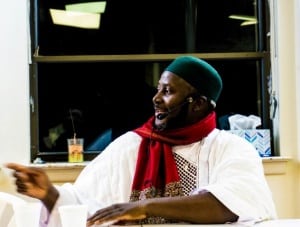 and became the primary teachers, healers and religious leaders for the entire region.
and became the primary teachers, healers and religious leaders for the entire region.
By the age of 5, Imam Drame had begun his formal studies, which included not only putting to memory the entirety of The Qur’an but also detailed study of Arabic grammar and poetry, Quranic exegesis, the traditions of the Prophet Muhammad (saws), and most notably, the knowledge and practice of spiritual excellence, otherwise known as Sufism. In addition, Imam Drame is gifted in languages; before leaving his native Gambia for Quebec to pursue a BA in linguistics at University of Quebec, Imam Fode had already taught himself French, German, Greek, Hebrew, and Latin.
Since arriving in Canada in the 1990s, Imam Fode Drame has continued in the tradition of the Jakhanke imams, by serving as a community leader and scholar of Islam (commonly termed ‘Imam’), however he has also been an extraordinary teacher of Quranic exegesis, a guide for spiritual development or ‘tasawwuf’, and a healer to all those who seek his support. He has authored a series of writings in both Arabic and English (called Expansions) of which he has currently published five volumes, and also an unique translation of the Quran into English, called Anwar ul-Quran.
Imam Fode currently resides in Vancouver, Canada where he is active in Islamic activities. He is the founder of the Zawiyah Foundation a registered charitable organization in Canada.
Bio taken from www.zawiyah.ca
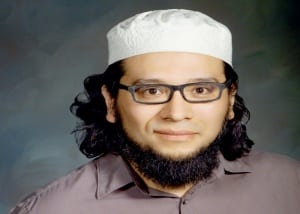
Giovanni Herran
Giovanni Herran has been an educator for nearly two decades and currently teaches Ethics at Temple University. He has taught subjects including comparative religion and Islamic intellectual history, and his Master's thesis in History researched the intersection between colonization, imperial culture, the production of race, and evolutionary theory. He is currently finishing his doctoral research on epistemology and non-dualism within the late Islamic heritage.
Dr. Hatem Bazian
Hatem Bazian is a co-founder and faculty member at Zaytuna College. He is also a senior lecturer in the  Departments of Near Eastern and Ethnic Studies at the University of California, Berkeley. In addition, Dr. Bazian is also a visiting Professor in Religious Studies at Saint Mary’s College of California and advisor to the Religion, Politics, and Globalization Center at UC Berkeley. In 2009, he founded the Center for the Study of Documentation of Islamophobia at UC Berkeley. Dr. Bazian is on the board of several organizations, including the Islamic Scholarship Fund and Muslim Americans for Palestine, for which he is also the founding president.
Departments of Near Eastern and Ethnic Studies at the University of California, Berkeley. In addition, Dr. Bazian is also a visiting Professor in Religious Studies at Saint Mary’s College of California and advisor to the Religion, Politics, and Globalization Center at UC Berkeley. In 2009, he founded the Center for the Study of Documentation of Islamophobia at UC Berkeley. Dr. Bazian is on the board of several organizations, including the Islamic Scholarship Fund and Muslim Americans for Palestine, for which he is also the founding president.
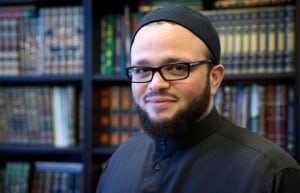
Shaykh Yasir F. Fahmy
Shaykh Yasir began the study of Arabic and Islamic Sciences in his high school years under the guidance of local teachers. At the age of seventeen, he traveled to Amman, where he spent a year studying at the Islamic University of Jordan. He returned to the US and completed a Bachelor’s of Science from Rutgers University. After working in corporate America for three years in finance, he returned to the Middle East and enrolled in the prestigious Al-Azhar University in Cairo.
After seven years of intensive study, Shaykh Yasir received a degree in Islamic Studies from Al-Azhar and attained numerous ‘ijazas (independent certifications) in the subjects of fiqh, hadith, aqida, usul al-fiqh, sirah, tazkiyyah, mantiq, Arabic grammar (nahu), morphology (sarf) and rhetoric (balagha). In 2013, Shaykh Yasir Fahmy became the first American Azhari to teach in the renowned Al-Azhar Mosque.
Through his teaching, lecturing, mentorship, and religious leadership, Shaykh Yasir aims to foster love for the deen and appreciation of the vast richness of Islamic tradition in new generations of American Muslims.
Imam Zaid Shakir
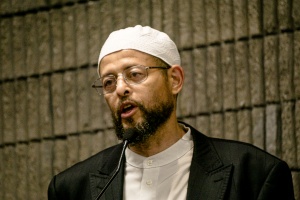
Zaid Shakir is co-founder and senior faculty member of Zaytuna College and also serves on its Board of Trustees. In 1983, while at Rutgers University, New Brunswick, NJ., he co-founded the New Brunswick Islamic Center formerly Masjid al-Huda. In 1987, he settled in New Haven, CT., and continued his community activism co-founding Masjid Al-Islam. Zaid Shakir moved to Hayward, California to serve as a scholar-in-residence and lecturer at Zaytuna Institute in 2003. He co-founded the Lighthouse Mosque, Oakland, CA. in 2007. He co-founded Zaytuna College in 2009, where he now teaches Islamic law and history. Zaid Shakir is one of the signatories of A Common Word Between Us and You, an open letter by Islamic scholars to Christian leaders, calling for peace and understanding. Known to the world as Imam Zaid, he has authored numerous articles on a wide range of topics, becoming a voice of conscience for American Muslims and non-Muslims alike. Recently, he was ranked as “one of the western world’s most influential Scholars The 500 Most Influential Muslims, edited by John Esposito and Ibrahim Kalin, (2009). Imam Zaid is featured in numerous Lamppost works including our new book, “Tears of the Yearners for the Meeting With God” by Ibn Rajab al-Hanabli
Ustadha Zaynab Ansari
Zaynab Ansari spent a decade studying Farsi, Arabic, and traditional Islam, sitting with 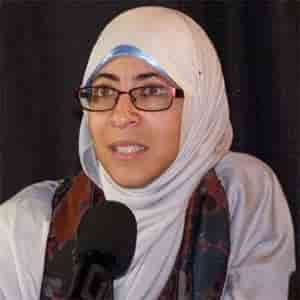 male and female scholars in seminaries in the Middle East, including traditional scholars in Damascus in the 1990s. Upon her return to the United States, she earned degrees in history and Middle Eastern Studies from Georgia State University.
male and female scholars in seminaries in the Middle East, including traditional scholars in Damascus in the 1990s. Upon her return to the United States, she earned degrees in history and Middle Eastern Studies from Georgia State University.
Since 2014, Zaynab Ansari has served as a scholar-in-residence for Tayseer Foundation, offering enrichment courses and halaqahs to women and youth in the Muslim Community of Knoxville, and working on interfaith dialogue. She is currently an instructor at Tayseer Seminary, which features a one-year intensive in Islamic Studies, drawing students from Tennessee and all regions of the United States.
Ustadha Zaynab has previously written and taught for SunniPath and the Lamppost Education Initiative. She has been a freelance writer for Azizah Magazine, a certified speaker with the Islamic Speakers Bureau of Atlanta, and a contributor to online Islamic educational portals such as SeekersHub. She has also served as the coordinator of oral histories for the After Malcolm Project, a digital archive of African-American Muslim history. She is part of the teaching faculty of the Ribaat Program, an online Islamic Studies curriculum led by Anse Tamara Gray, a leading woman scholar of traditional Islam. She is also a board member of Tayseer Seminary.

